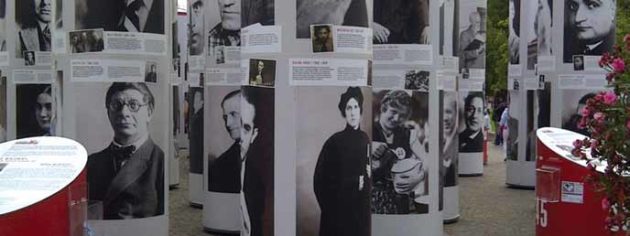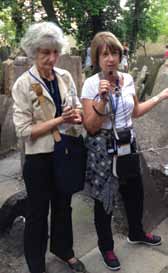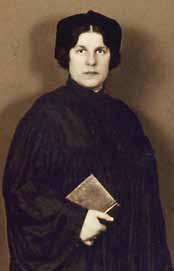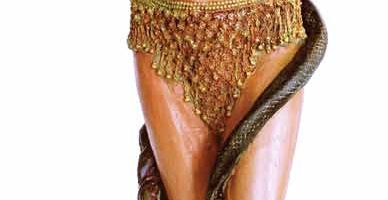Before the World Was Ready
History


Rabbi Sandy Eisenberg Sasso (R) and guide in the Prauge Jewish Cemetery
The first women ordained as rabbis in the Unites States — Sally Priesand, Reform, 1972; Sandy Eisenberg Sasso, Reconstructionist, 1974; Amy Eilberg, Conservative, 1985; and Rabba Sara Hurwitz, Modern Orthodox, 2010 — traveled together to Berlin, Prague and Terezin in July to commemorate and learn more about the life of the first woman rabbi ever ordained. Lilith readers are familiar with the story of Regina Jonas, but new details surfaced during the poignant trip, which was organized by the American Jewish Archive and the Jewish Women’s Archive. Rabbi Eilberg shared these details on the Jewish Women’s Archive blog:

Rabbi Regina Jonas
“Regina Jonas, born into a poor Orthodox Jewish family in Berlin in 1902, dreamed of being a rabbi at the astonishing age of 11, far before the Jewish world was ready to support her aspirations. During the 1920s, she studied at the Academy for the Science of Judaism, taking all the same courses and exams required of rabbinical students, and wrote her rabbinic dissertation on the remarkable topic, ‘Can Women Serve as Rabbis?’ The faculty member who seemed ready to ordain her suddenly died and the institution agreed only to grant her the degree of ‘Academic Teacher of Religion.’ But in 1935, she was ordained as a rabbi by Rabbi Max Dienemann, representing the association of liberal (Reform) rabbis in Berlin. At first she was invited to work in schools, Jewish hospitals and nursing homes. As many rabbis fled the country, there was an unmet need for rabbis and Rabbi Jonas was able to serve in several synagogues that were desperate for rabbinic leadership as catastrophe approached. Regina Jonas was deported to Terezin in November of 1942, where she worked with psychologist Viktor Frankl in the camp before being deported to Auschwitz on October 12, 1944, where she was murdered.”
Rose Zoltek-Jick, a Boston law professor and Lilith board member who is the child of a Holocaust survivor, was one of the delegation of about 30 people who made the trip. She wrote, “It was far more meaningful than I could have ever anticipated. I knew that being surrounded by committed Jews would be the only way I could encounter the fears and ghosts that have shaped my being.
“[At the Berlin Jewish museum] it is unsettling (to say the least) to feel the clang of the door in Leibskind’s memorial that shuts you into a concrete tower with a crack of light and a ladder you could never reach; one descends into the maze of memorial stones created by Peter Eisenmann and realizes the hide and seek is not a game, if you are being pursued and you are not sure that there will be anyone waiting to find you at the other end. And it is quite another emotion to sit in Gestapo headquarters and know that you, a Jew, unlike one’s people just one generation ago, will walk out of there alive.
“At the same time, we had the honor of meeting Jews who have created a new rabbinic academy and its graduates who are serving in communities of small numbers all over Europe, and women rabbis who are creating the new norms that are necessary to reach out and spark any hope of renewal.”


